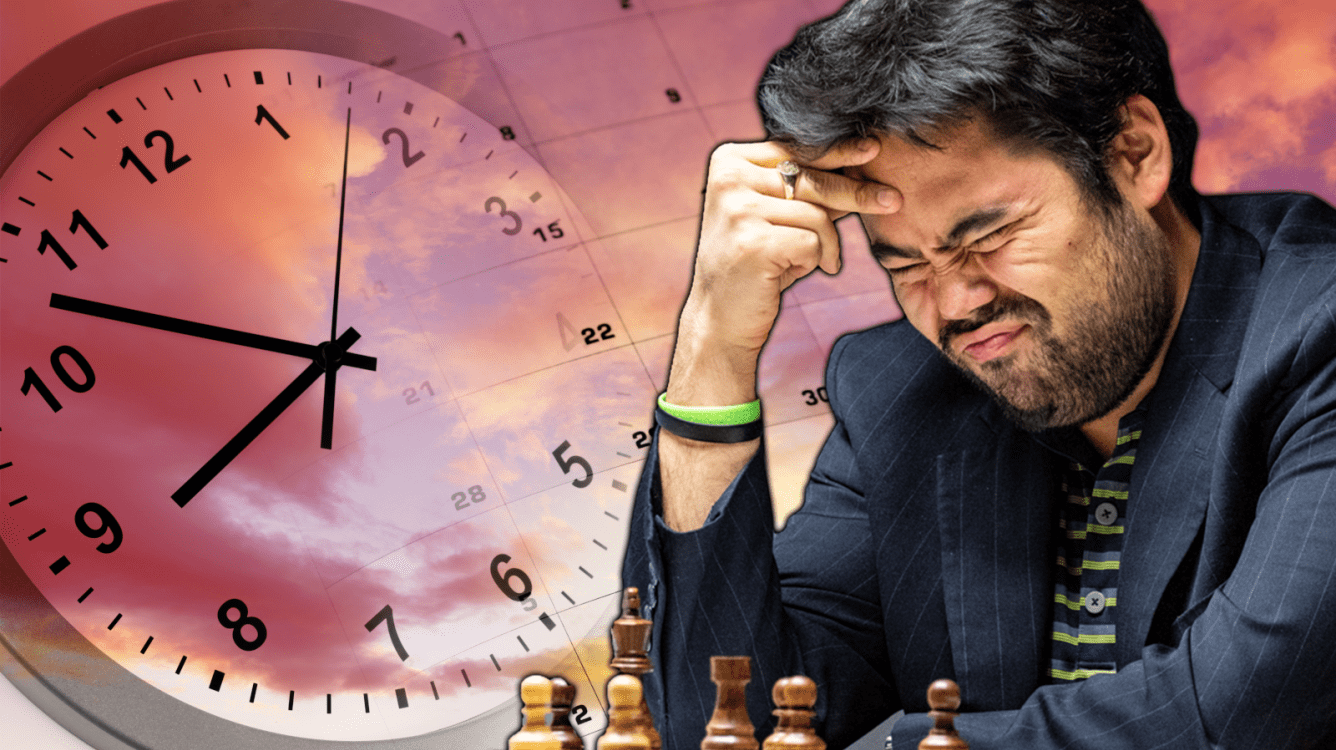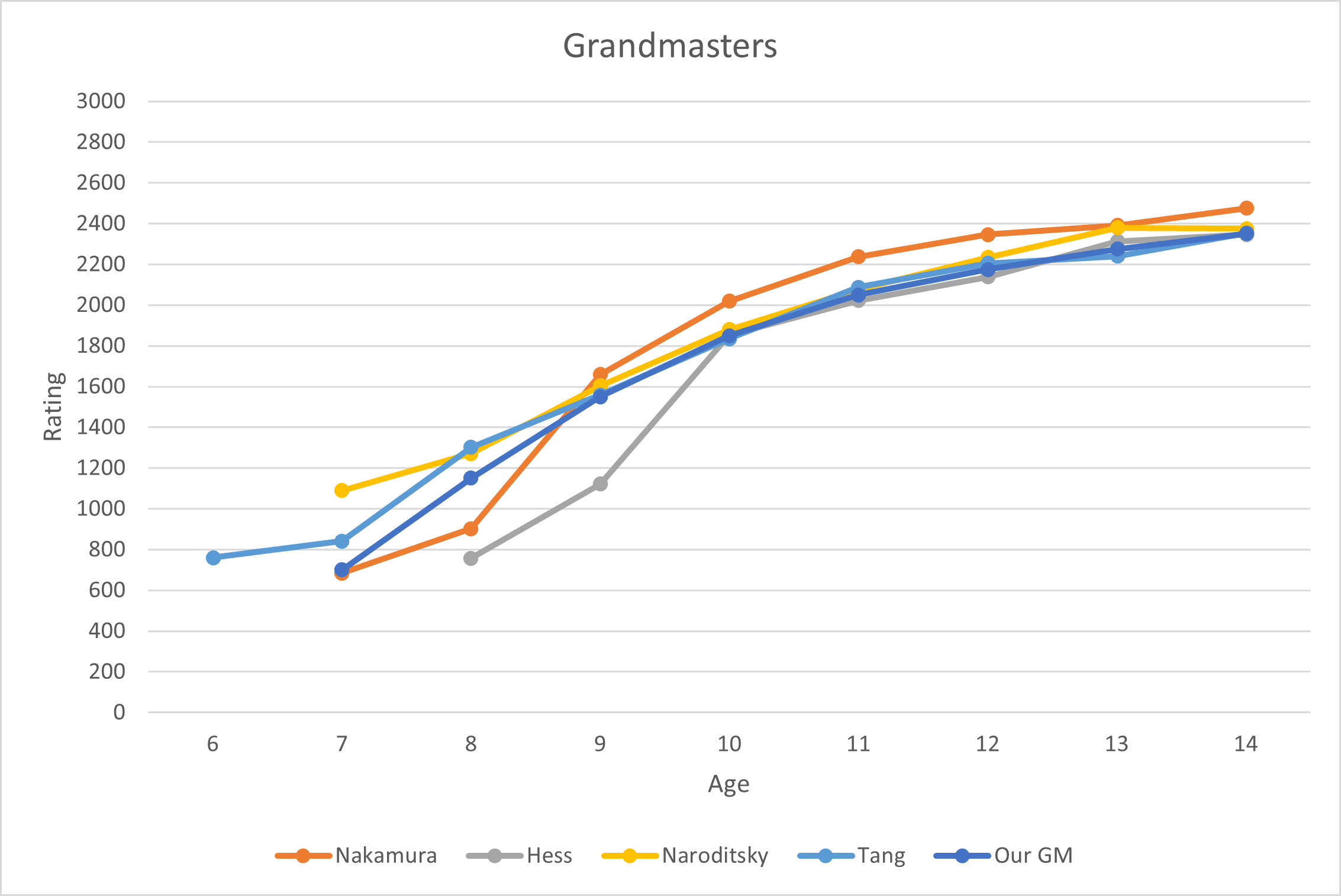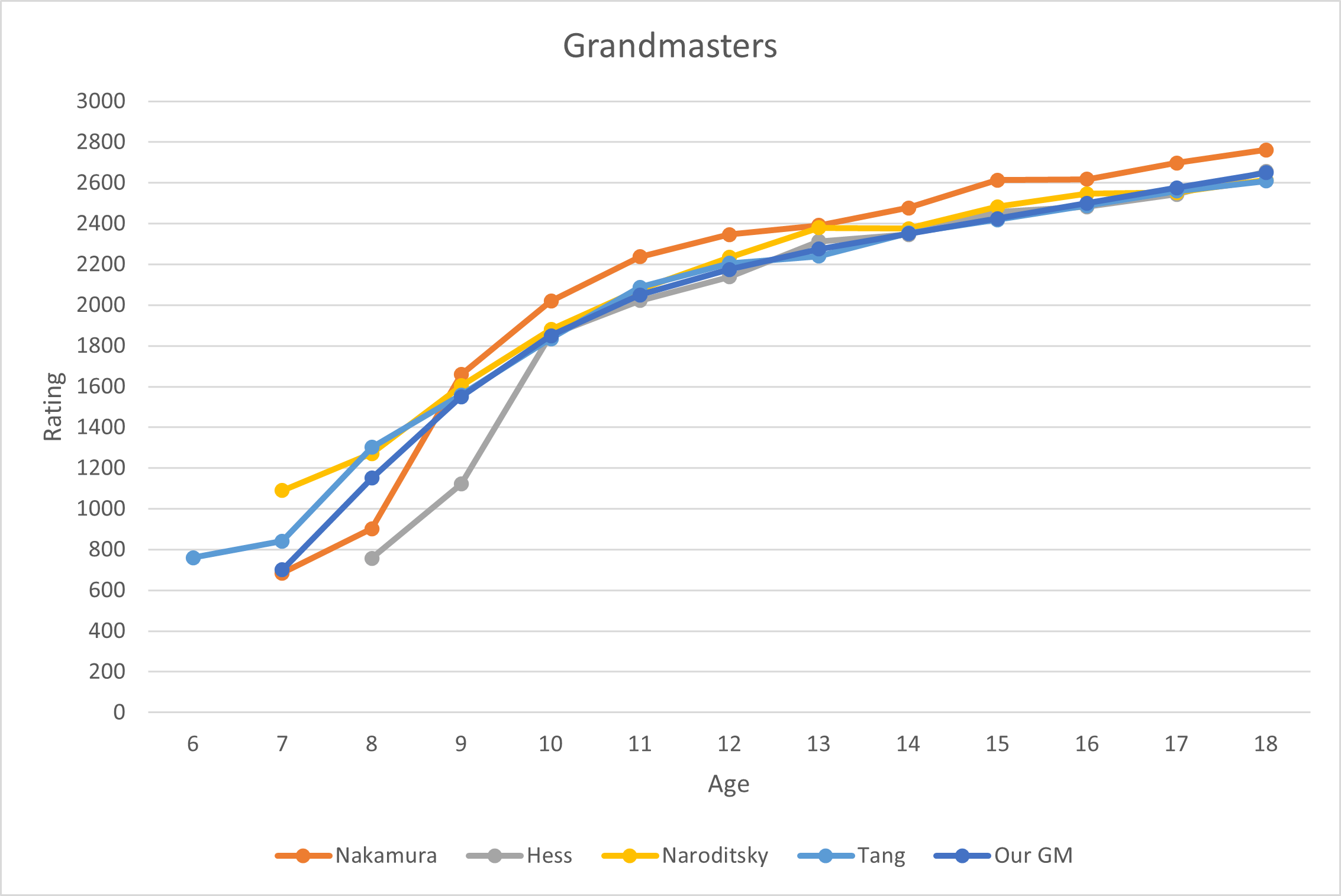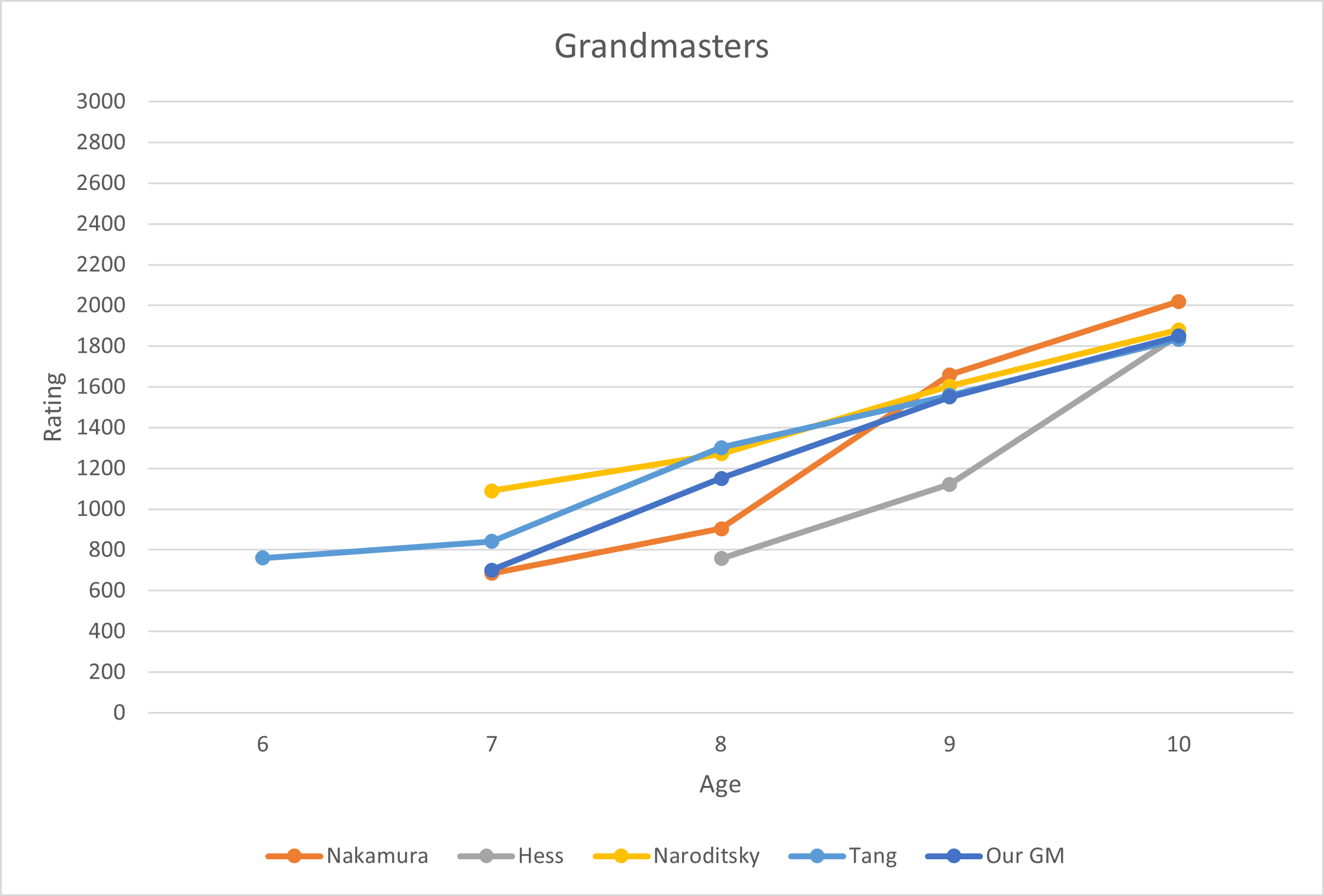
How Many Hours Of Chess Study Does It Take To Be A Grandmaster?
The grandmaster title is the highest title awarded in chess. Chess titles are awarded by the International Chess Federation (FIDE). As of the September 2020 FIDE rating list, there are 1721 grandmasters in the world. One question that often comes up in various sports and hobbies is "How many hours does it take to master ____?" In this article, we are going to attempt to figure out how many hours it takes to reach the grandmaster title.
Assumptions
We will have to make a few assumptions to build a prediction for how many hours it takes to reach the grandmaster title. Based on a more advanced version of the ChessGoals Rating Gain Calculator, we can make predictions for annual rating gain with a few assumptions. To help guide these assumptions, we will be following four U.S. grandmasters. I am choosing USChess players because it's common in the U.S. to receive a rating at a young age. Some of the ages are rounded up to the nearest year. These players are well-known in the chess community and represent a spectrum of ages born every 4 years.
- Hikaru Nakamura: Born in 1987, started playing rated games at age 8, rated approximately 700
- Robert Hess: Born in 1991, started playing rated games at age 8, rated approximately 750
- Daniel Naroditsky: Born in 1995, started playing rated games at 8, rated approximately 1100
- Andrew Tang: Born in 1999, started playing rated games at age 6, rated approximately 750
Here are the assumptions going into our predictions:
Starting Age
The starting age for grandmasters varies quite a bit, but almost all of them start in the single-digit ages. We are going to assume our hypothetical grandmaster starts playing chess at the age of seven. There are some FIDE Candidate Masters that are as young as nine or ten years old on the most recent rating list.
Hours Per Week
In past analyses, I've found there tends to be a burnout effect that happens at around 20 hours per week of chess study. We will assume our future grandmaster spends 20 hours per week (or less) to maximize their rating gains during younger years.
Gain Per Year
Instead of using the average rating gain, we will assume these grandmasters are between the median and the top 25th percentile of rating gain per year based on the rating calculator input factors. It seems reasonable to think that grandmasters are naturally inclined to gain more points than the average player, but we will also use the four grandmasters above to guide us.
Ages 7-10
We are starting our seven-year-old future grandmaster at a 700 rating. They know how to move the pieces, but that's about it. In the first year, they spend 20 hours per week, improving by 450 points. Players under age 10 who are rated below 1000 can regularly gain 300+ points per year when they are obsessed with playing and studying chess.
Between ages 8-10 our grandmaster will still spend 20 hours per week, gaining 400 points at age 8 and 300 points at age 9. This places our GM at an 1850 rating when they are age 10. Through the first four years, our GM has spent 4160 hours on chess so far.
Ages 11-14
The rating gains become much more difficult now that our GM is already at an advanced level. After about expert level (2000), gaining 200+ points in a year becomes rare. Between ages 11-14, our GM continues to spend an average of 20 hours per week. This fits into expectations of annual rating gain and our four famous grandmasters. At age 11, our GM gains 200 points to go from 1850 to 2050 rating.
In the next three years, our GM gained 125, 100, and 75 points, respectively. At age 14 now, our GM is rated 2350 with 8320 hours spent playing and studying chess. This is right in line with our famous grandmasters, and also fits closely with median or slightly above median projected gains in the rating calculator.

Ages 15-18
This is a critical age for scholastic players to stay focused on chess improvement. Most of the famous grandmasters had full 12-month periods of virtual rating stagnation, and gaining 50-100 points annually is considered a good year. Between ages 15-18, our GM will continue to spend 20 hours per week while working on their more difficult school studies. They will also most likely have a trainer to help keep pushing their rating progress.
Our GM will continue to gain about 75 points per year, reaching the following levels:
- Age 15, 2425 USChess rating, FIDE Master (FM) title attained
- Age 16, 2500 USChess rating, FIDE International Master (IM) title attained
- Age 17, 2575 USChess rating, working on Grandmaster (GM) norms
- Age 18, 2650 USChess rating, FIDE Grandmaster title attained!

Conclusion
The estimate for the hours spent to become a chess grandmaster is:
20 hours/week * 52 weeks/year * 11 years = 12,480 hours
12,480 hours is the final estimate on the number of hours it takes to reach the grandmaster title for players who start under age 10. This is a huge time commitment, but the assumptions seem fairly reasonable based on all of the data I've looked at for chess improvement. The best things you can do for your own chess improvement involve having an efficient study plan, working hard, and staying dedicated year after year without getting burnt out.
P.S. How many chess games does it take to become a grandmaster?
An interesting related question is, "How many chess games does one need to play to become a grandmaster?" When one considers rated and unrated chess over the board as well as online chess, it's impossible to track all games played by future grandmasters, but here are the number of games played on Chess.com by several very talented Chess.com regulars before they became grandmasters:
- Anton Smirnov (@antonsmirnov) became a GM on September 19, 2017: 2,831 games
- Nihal Sarin (@nihalsarin) became a GM on August, 14 2018: 18,106 games
- Arjun Erigaisi (@GHANDEEVAM2003) became a GM on August 16, 2018: 5,191 games
- Raunak Sadhwani (@champ2005) became a GM on Oct. 19, 2019: 7,243 games





